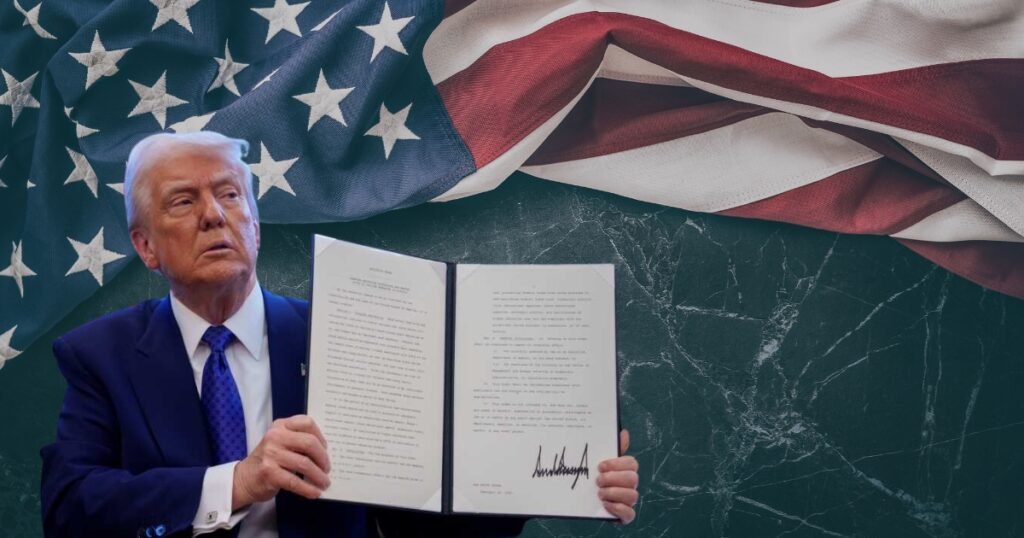
A new wave of tariffs was unleashed by Trump on Tuesday, 8th April, 2025. Among dozens of partners, Trump’s tariff seemed to have a high effect on China and the overall manufacturing industry. His decision to impose new tariffs on Chinese goods has escalated the war that already rattled the global markets and triggered recession fears.
However, Beijing refused to back off and decided to “fight to the end” after Trump threatened to hit Chinese exports with an additional 50% tariff. Therefore, the Chinese imports will now soar to a cumulative 104%, including a fresh wave of mulct set to take effect at 12:01 am ET Wednesday.
The tariff war has become a face-off between China and the U.S. Both are the biggest exporters and play a vital role in managing the global economy. Thus, it creates major concern for the traders all over the world. It is more like a war game between two countries that can affect overall economic growth.
Trump’s decision has already affected some Asian markets as well. Furthermore, Taiwan stocks are falling 5.8%, Indian stocks are falling by 3.24%, and Japan’s Nikkei benchmark index is diving 5%. At the same time, the yen rallied 1% as investors sought refuge from the impact of the new tariff regime. Additionally, Hong Kong’s benchmark, the Hang Seng, was down 1.6%.
If we focus on China’s decision, the government of the country has announced countermeasures, including tariffs on U.S. goods and potential restrictions on critical exports. The Chinese government has also criticized the U.S. actions as “blackmail” and decided to fight till the end. Being the number one exporter in the world with a trading value of more than $6 trillion, China is never backing down. Additionally, the manufacturing capabilities and vast commercial network make the country a significant player in both exports and imports. Therefore, China’s decisions on the situation signify a long tariff war.
Impact of the Tariff on the Global Economy?
If we think about the impact, there is a possibility for the U.S. to push China to the brink of a tariff war. Any issue affecting the world’s largest traders somehow closes several economic doorways for other countries. If we think thoroughly, the imposition of a 104% levy on Chinese imports can force the rerouting of supply chains to avoid cost spikes. This could result in trade inefficiencies and bottlenecks. It includes the sectors that are heavily reliant on Chinese manufacturing, such as automotive components, electronics, and consumer goods.
Stock markets are already deteriorating as investors brace for economic uncertainty. To clarify, the tariffs have triggered retaliatory actions, and investor confidence wanes. Therefore, it is common to see sustained periods of market turbulence. The higher the tariffs, the higher the cost of imported goods. So, the rise in inflationary pressure is no exception. Thus, the U.S. businesses and consumers might bear the brunt of increased prices, which might ripple into global markets.
When there is a lack of import and export of goods, it is natural to have slower economic growth. If we think closely, trading is more than just a business, as it helps to maintain close ties among countries that lead to better economic growth. Import and export help in increasing employment, improving supply chain operations, and employing skilled workers in different industries. Thus, the tariff issue can easily affect the positive aspects of trading.
Wrapping Up
The results of high tariffs on China might lead to big suffering for manufacturers, investors, and different businesses. Additionally, the uncertainty is already enhancing the risk to the global economy. Along with this, the stock market is also facing issues as businesses and consumers remain clueless about the tariff rate to be an hour from now. Apparently, the situation is leading to falls in the stock market as investors remain unsure of the upcoming situation. Whether it is China, India, or other partners, the tariffs have already affected the economic balance of countries.



